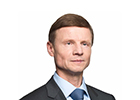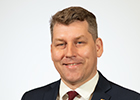Majanduskomisjoni algatatud olulise tähtsusega riikliku küsimuse "Kuidas tõsta tootlikkust Eesti majanduses?" arutelu
Istung: XV Riigikogu, V istungjärk, täiskogu istung
Kuupäev: 2025-06-05 13:08
Sõnavõtte kokku: 100
Koosseis: 15
Päevakorra kestus: 3h 1m
AI kokkuvõtted: 100/100 Sõnavõtud (100.0%)
Analysis: Structured Analysis
Poliitikute Kõneaeg
Poliitikud
Analüüs
Kokkuvõte
Esitatud päevakord käsitleb olulise tähtsusega riiklikku küsimust: "Kuidas tõsta tootlikkust Eesti majanduses?" ning on algatatud majanduskomisjoni poolt. Päev on korraldatud ühe põhiteema lõikes, mille ümber moodustuvad kolm ettekandjat: Marek Reinaas majanduskomisjoni esimehena (ettekande pikkus kuni 15 minutit, küsimused ning vastused kuni 15 minutit), Urmas Varblane konkurentsivõime eksperdikogu liikmena ning Tartu Ülikooli majandusteaduskonna rahvusvahelise ettevõtluse professorina ning akadeemikuna (ettekanne kuni 30 minutit, küsimused ja vastused kuni 30 minutit) ning Raivo Vasnu Viru Keemia Grupi juhatuse liikmena (ettekanne kuni 20 minutit, küsimused ja vastused kuni 30 minutit). Iga Riigikogu liige saab esitada ettekandjale ühe küsimuse. Peale ettekanneid algavad läbirääkimised ning algatajatel on soov, et kõigepealt esineksid fraktsioonide esindajad. Päevakorra lõpus toodi välja plaan pikendada istungit, kui vajalik, ning otsus selle kohta võeti vastu hiljem. Esindatud olid teemad, mis puudutasid konkurentsivõime raporti järeldusi, ekspordi ja teenuste sektori rolli, andmete kasutamist majanduses, Euroopa Liidu siseturgu ja rida iseseisvaid küsimusi (sh energiapoliitika, investeeringud, regionaalne areng ja bürokraatialeevendused). Selles arutelus kajastuvad ka kriitilised küsimused ning potentsiaalsed riskid, mis on seotud demograafiliste suundumuste ja tulevaste investeeringutega.
Tehtud otsused 1
Istungi pikendamise otsus: istung jätkub päevakorra ammendumiseni ja mitte kauem kui kella 14:00. Hääletustulemus: 24 poolt, 0 vastu, 0 erapooletut.
Aktiivseimkõneleja
Marek Reinaas – majanduskomisjoni esimees, erakondlikult seotud, juhtiv esineja ja arutelu moderaatorilaadne osaleja. Ta oli kõige aktiivsem kõneleja ja vastas mitmele küsimusele ning esines juhtiva rolliga kogu päevakorralisel arutelul.
Aseesimees Arvo Aller
AI kokkuvõte
Riikliku küsimuse „Kuidas tõsta tootlikkust Eesti majanduses?” arutamiseks tuleb täna kolm ettekandjat (Marek Reinaas, Urmas Varblase ja Raivo Vasnu), järgnevad küsimused ja vastused ning läbirääkimised, algatajad soovivad fraktsioonide esindajate osavõttu ning esimeseks esinejaks on Marek Reinaas.

Marek Reinaas
Profiileerimine Fraktsiooni mittekuuluvad Riigikogu liikmedAI kokkuvõte
Marek Reinaas ütles, et Eesti konkurentsivõime sõltub pikaajalisest maratonist, kus eksport ja teenuste kasv, andmepõhised lahendused ning riigi ja erasektori investeeringud (sh Team Estonia ja SmartCap) tuleb koordineerida ning demograafilised muutused nõuavad majanduse pikaajalist planeerimist.
Aseesimees Arvo Aller
AI kokkuvõte
Aseesimees Arvo Aller tänas ja ütles, et on küsimusi, ning palus Tanel Kiike vastama.

Tanel Kiik
Profiileerimine Fraktsiooni mittekuuluvad Riigikogu liikmedAI kokkuvõte
Tanel Kiik tänas konkurentsivõime raporti koostajaid, kuid küsis, kuidas valitsuse otsus hakata vanglateenust eksportima ehk teiste riikide vange majutama sobib kokku innovatiivse oskustööjõupoliitikaga, pidades seda maine kahjustavaks valdkonnaks.
Aseesimees Arvo Aller
AI kokkuvõte
Kõne kutsub kuulajaid tegutsema ja võtma vastutust, öeldes: "Teie aeg!"

Tanel Kiik
Profiileerimine Fraktsiooni mittekuuluvad Riigikogu liikmedAI kokkuvõte
Tanel Kiik küsib lühidalt majutamise kohta.

Marek Reinaas
Profiileerimine Fraktsiooni mittekuuluvad Riigikogu liikmedAI kokkuvõte
Ma tõin esile, et 2024. aasta eksperdikogu raport on osaliselt ellu viidud ning on tehtud edusamme kvalifitseeritud tööjõu puuduse leevendamisel, hariduses, digitaliseerimises ja bürokraatia vähendamisel, kuid vanglateemal rõhutas ta, et teenuse pakkumine väljastpoolt Eestit ei tohi riskida Eesti julgeolekuga ning tühjade vanglate kasutamisest võib riik saada umbes 30 miljonit eurot tulu.
Aseesimees Arvo Aller
AI kokkuvõte
See on väga lühike palve, suunatud Aivar Sõerdile.

Aivar Sõerd
Profiileerimine Eesti Reformierakonna fraktsioonAI kokkuvõte
Aivar Sõerd rõhutas, et nominaalne tööjõu tootlikkus Euroopa Liidu keskmisest on väga konkreetne ja adekvaatne näitaja, mis on Eesti 2035 prominentsete näitajate seas ning kuulub ka tegevuspõhise eelarve jaoks oluliste näitajate hulka, ning mainis, et viimase teadaoleva väärtusena oli 2023. aastal 77,5%, ning palus esitada eelmise aasta näitaja või vähemalt öelda, kas liigume 120% eesmärgi suunas või kaugeneme, lisades, et enne 2023. aastat näitaja langes.
Aseesimees Arvo Aller
AI kokkuvõte
Aseesimees Arvo Aller tänas.

Marek Reinaas
Profiileerimine Fraktsiooni mittekuuluvad Riigikogu liikmedAI kokkuvõte
Marek Reinaas tõdeb, et Eesti majanduse suurim mure on tootlikkuse langus ja selle lahenduseks näeb ta digitaliseerimist ning automatiseerimist koos AI abiga, et saavutada ambitsioonikas 120% Euroopa keskmisest tootlikkusest ning arendada majandust teistmoodi.
Aseesimees Arvo Aller
AI kokkuvõte
Aseesimees Arvo Aller kutsub Urmas Kruuse kõnelema.

Urmas Kruuse
Profiileerimine Eesti Reformierakonna fraktsioonAI kokkuvõte
Urmas Kruuse küsib, kas Eesti on võrreldes Lätiga ja Leeduga paremad teenuste eksportijad, ja kas see peegeldab meie tarkust ja teadmist või hoopis lihtsamat turule sisenemist ning kas tulevikus kasvab teenuste osakaal ekspordis, meenutades samal ajal, et 2014. aasta IT oli tabuks peetud teema, mis nüüd kannab.

Marek Reinaas
Profiileerimine Fraktsiooni mittekuuluvad Riigikogu liikmedAI kokkuvõte
Marek Reinaas rõhutab, et Eesti edu tuleb peamiselt IT-teenuste ekspordist ja meie maine kujundamisest, kuid tööstus ja põllumajandus on samuti olulised ning riigi IT-teenuste hankepoliitika peaks neid edasi arendama.
Aseesimees Arvo Aller
AI kokkuvõte
See on lühike kõne, milles pöördutakse Anti Haugase poole ja palutakse midagi.

Anti Haugas
Profiileerimine Fraktsiooni mittekuuluvad Riigikogu liikmedAI kokkuvõte
Anti Haugas väljendab muret Tanel Kiige maailmavaatelise ekslemise pärast ning väidab, et Rootsis kolmekordistub vangide arv järgnevate aastate jooksul sotsiaaldemokraatide reintegratsiooni- ja ühiskonnastamisprotsesside puudulikkuse tõttu, samal ajal kui Eesti on valmis eksportima sisulist sotsiaalteenust ja arutama riikidevahelise koostöö laienemist ka teistesse sektoritesse.

Marek Reinaas
Profiileerimine Fraktsiooni mittekuuluvad Riigikogu liikmedAI kokkuvõte
Marek Reinaas märgib, et vangid viiakse Eestisse, istuvad siin ja näevad loodust trellide tagant, kuid Eesti julgeoleku pärast pole põhjust pabistada; koostööd teiste riikidega teevad Eesti IT-ettevõtjad, kes ekspordivad saadud kogemust välisriikidesse, näiteks maksuameti teenuste näitel, mis toob tööd ja maksutulu, ning seda peaksid tegema ettevõtjad ise, mitte parempoolne valitsus.
Aseesimees Arvo Aller
AI kokkuvõte
See on kiire küsimuse ja vastuse moment, kus kutsutakse Pipi-Liis Siemann.

Pipi-Liis Siemann
Profiileerimine Fraktsiooni mittekuuluvad Riigikogu liikmedAI kokkuvõte
Pipi-Liis Siemann rõhutas konkurentsivõime olulisust ja vajadust energiahindade kontekstis pakkuda olemasolevatele ja uutele ettevõtetele võimekust ning säilitada ja parandada konkurentsivõimet, viidates raportis käsitletud elektriaktsiisi ja tasudele.

Marek Reinaas
Profiileerimine Fraktsiooni mittekuuluvad Riigikogu liikmedAI kokkuvõte
Ettekanne rõhutab, et taastuvenergia optimaalne osakaal Eesti energiasüsteemis on umbes 60–80%, kuna selle piirini hind langeb, kuid ületades 80% ei mõjuta hind enam ja võib olla ebapraktiline, ning pikaajalises plaanis tuleks põlevkivienergia asendada muu lahendusega (gaas või tuum), kuigi Riigikogu on otsustanud, et tuumaenergiaga võiks edasi minna, kui see on vähekenegi kasulik.
Aseesimees Arvo Aller
AI kokkuvõte
Kuigi küsimusi on veel palju, aeg surub peale ja küsimuste-vastuste aeg sai läbi.

Marek Reinaas
Profiileerimine Fraktsiooni mittekuuluvad Riigikogu liikmedAI kokkuvõte
Marek Reinaas tänab kõiki kuulajaid.
Aseesimees Arvo Aller
AI kokkuvõte
Järgmisena astub lavale konkurentsivõime eksperdikogu liige ning Tartu Ülikooli majandusteaduskonna rahvusvahelise ettevõtluse professor ja akadeemik Urmas Varblase, kelle kõne kestab kuni 30 minutit.
Akadeemik Urmas Varblane
AI kokkuvõte
Urmas Varblane rõhutas, et Eesti konkurentsivõime säilitamiseks tuleb järgida reeglipõhist kaubandust, teha tihedat koostööd naabrite ja Euroopa Liiduga taastuvenergia tasakaalustamisel ning investeerida sidetaristute ja võrkude arendamisse ning tagada tarbijate, tööstuse ja põllumajanduse huvide tasakaalustatud arendamine.
Aseesimees Arvo Aller
AI kokkuvõte
Aseesimees Arvo Aller tänab ning teatab, et 30 minutit on täis saanud ja isegi ületatud.
Akadeemik Urmas Varblane
AI kokkuvõte
Akadeemik Urmas Varblane vihjab, et ta lõpetab peagi, ning kõne on peaaegu läbi.
Aseesimees Arvo Aller
AI kokkuvõte
See on lühike ja otsekohene märkus, milles öeldakse: “Selge!” ja kutsutakse siis kuulama.
Akadeemik Urmas Varblane
AI kokkuvõte
Ta soovitas vähendada toetuste killustatust ja lõpetas kõne, öeldes, et see ongi viimane pilt.
Aseesimees Arvo Aller
AI kokkuvõte
Ettekandjale tänati ning paluti küsimusi; Urmas Kruuse palutakse vastama.

Urmas Kruuse
Profiileerimine Eesti Reformierakonna fraktsioonAI kokkuvõte
Urmas Kruuse tõstatas, et lairibataristute arendamine on omandisuhete ja omavalitsuste kaasamise tõttu edasi lükkunud ning kodutarbijadeni jõudmine on piiratud, konkurents on väike ning investeeringud ei jõua efektiivselt realiseeruda, võrdles Leeduga, kus investeeriti tööstusesse, meie aga karja- ja tootmisesse, märkis Paide tehase taastamist ja juustutoodete ekspordi paranemist ning tõdes, et madal maht suurendab kulusid ja seab küsimuse, kuidas tulevikus konkurentsivõimet säilitada.
Akadeemik Urmas Varblane
AI kokkuvõte
Urmas Varblane ütles, et Epiima tehase edu näitab lisaväärtuse loomise ja tootjate usalduse taastamise tähtsust ning et tulevikus tuleb investeeringud suunata põllumajanduse väärindamisse (nt teravilja ja piima töötlemisse), mitte vaid tooraine eksporti.
Aseesimees Arvo Aller
AI kokkuvõte
Aseesimees Arvo Aller kutsub Tanel Kiike esinema.

Tanel Kiik
Profiileerimine Fraktsiooni mittekuuluvad Riigikogu liikmedAI kokkuvõte
Tanel Kiik tänab ettekandja põhjaliku ülevaate eest ning tsiteerib lõppraportist, et edukas turumajandus peab tagama sissetulekute võimalikult õiglase jaotuse ühiskonnas.
Akadeemik Urmas Varblane
AI kokkuvõte
See kõne on lühike ja teravalt kinnitav, väljendades lihtsalt sõna "Just!".

Tanel Kiik
Profiileerimine Fraktsiooni mittekuuluvad Riigikogu liikmedAI kokkuvõte
Tanel Kiik küsib ettekandja käest, kui hästi on Eesti hakkama saanud sissetulekute õiglase jaotusega ning kuidas varanduslik ebavõrdsus mõjutab konkurentsivõimet.
Akadeemik Urmas Varblane
AI kokkuvõte
Akadeemik Urmas Varblane räägib globaliseerumise võitjate ja kaotajate probleemist, rõhutab ümberõppe ja regionaalarengu vajadust ning näitab, kuidas Eestis tuleb töö leidmiseks inimesi liigutada töö juurde maakonnakeskustesse ning edendada kohalike kogukondade ettevõtluslikku elavnemist, näiteks Karksi-Nuia näitel.
Aseesimees Arvo Aller
AI kokkuvõte
Aseesimees palub Lauri Laatsil esineda.

Lauri Laats
Profiileerimine Eesti Keskerakonna fraktsioonAI kokkuvõte
Lauri Laats arutles Eesti majanduse tootlikkuse suurendamise üle, märkides energeetika murekohta ning küsides, kas regiooni maksuerisuste kaalumine võiks olla lahendus, kuidas panna mõni regioon tööle.
Akadeemik Urmas Varblane
AI kokkuvõte
Akadeemik Urmas Varblane ütles, et Eesti peaks jagama kaks NUTS 1 regiooni – Harjumaa ja ülejäänud Eesti – et Euroopa abiraha kaasfinantseerimise tingimused oleksid tõhusamad ja investeeringud suunatuks väljapoole Tallinna, samal ajal tunnistades varasemate regionaalsete maksuerinevuste kuritarvitamist ning rõhutades, et ettevõtlus väljaspool Harjumaad peab säilima.
Aseesimees Arvo Aller
AI kokkuvõte
Aseesimees Arvo Aller pöördub Vladimir Arhipovi poole ja palub tal midagi.

Vladimir Arhipov
Profiileerimine Fraktsiooni mittekuuluvad Riigikogu liikmedAI kokkuvõte
Ettekandja väidab, et valitsuse maksutõusud ja rohepöörde rakendamine pidurdavad Eesti majanduse tootlikkuse kasvu, toob võrdlusi Soome ja Saksamaa näiteid ning küsib, kas Eesti liigub vastupidises suunas.
Akadeemik Urmas Varblane
AI kokkuvõte
Akadeemik Urmas Varblane rõhutas, et riigivõla kasvu pidurdamiseks ja usaldusväärsuse säilitamiseks tuleb panustada digitaalsele majandusele ja AI‑tehnoloogiate arengule, sest maksutõusud on edasi lükatud ning tasakaalustatud eelarve ning konkurentsivõime säilitamine on praeguses olukorras hädavajalik.
Aseesimees Arvo Aller
AI kokkuvõte
Kõne alguses kutsutakse Jaak Aab esinema.

Jaak Aab
Profiileerimine Fraktsiooni mittekuuluvad Riigikogu liikmedAI kokkuvõte
Jaak Aab ütles, et kuigi maksudebatt on olnud tihe, ei tahtnud ta täna sellest rääkida ning rõhutas tööjõu pakkumise säilitamise vajadust investeeringute ja töökohtade loomise kaudu ning olemasoleva tööjõu tootlikkuse suurendamise vajadust.
Akadeemik Urmas Varblane
AI kokkuvõte
Kõne on lühike ja väljendab tugevat kinnitust sõnaga "Just!".

Jaak Aab
Profiileerimine Fraktsiooni mittekuuluvad Riigikogu liikmedAI kokkuvõte
Jaak Aab tõdes, et välistööjõu sisserände kohta antud soovitused rõhutavad kõrget tootlikkust, kohalike oskuste täiendamist ja lõimimist, kuid praegune valitsuse plaan toob sisse keskmise palga eest töötajaid, mis nende tingimustega ei vasta.
Akadeemik Urmas Varblane
AI kokkuvõte
Urmas Varblane rõhutab, et majandust peaks mõõtma töökohtade hoidmise ja suurema lisandväärtusega tegevuse kaudu, mitte töökohtade loomise arvu järgi, ning keskenduma neljale tootlikkuse suurendamise suunale: automatiseerimine, digitaliseerimine, tooteportfelli väärtuse suurendamine ja tehnoloogiline uuendus.
Aseesimees Arvo Aller
AI kokkuvõte
Kõnes palutakse Reili Rand lavale tulla.

Reili Rand
Profiileerimine Sotsiaaldemokraatliku Erakonna fraktsioonAI kokkuvõte
Reili Rand tõi esile piirkondliku konkurentsivõime suure lõhe: Harjumaa SKP on üle kahe korra kõrgem kui Kagu-Eesti ja Hiiumaa panus SKP-s on peaaegu null, ning kutsus valitsust ja Riigikogu rakendama sihipärast regionaalset tööstus- ja investeerimispoliitikat koos maksuerisuste ja taristuinvesteeringutega, et suurendada kaugel asuvate piirkondade lisandväärtust, viidates samas, et eelne regionaalne poliitika on Reformierakonna juhituna taas sahtlisse jäänud.
Akadeemik Urmas Varblane
AI kokkuvõte
Urmas Varblane rõhutas Hiiumaa arengu kontekstis plastmassi sektori teadmussiire ja koostöö vajalikkust ning pakkus välja Hiiumaale plastmassi teadusnõuniku loomist, kes ühendaks kohalikud ettevõtted ja teadlased ning aitaks rakendusuuringuid rahastada.
Aseesimees Arvo Aller
AI kokkuvõte
30-minutiline küsimuste ja vastuste aeg sai läbi, küsimusi on veel ja tuleb kindlasti juurde; suur tänu ettekandjale ja küsijatele.
Akadeemik Urmas Varblane
AI kokkuvõte
Akadeemik Urmas Varblane tänab publikut tähelepanu eest.
Aseesimees Arvo Aller
AI kokkuvõte
Arvo Aller teatas, et arutelu on vilgas ning enne kolmanda ettekandja tulekut korraldatakse istungi pikendus ning palus hääletada pikenduse kuni arutelu ammendumiseni, kuid mitte hiljem kui kell 14:00.
Aseesimees Arvo Aller
AI kokkuvõte
Ettepanek võeti vastu 24 poolt, vastu ei olnud ning erapooletuid polnud; liigume edasi järgmise ettekandega ning palutakse Viru Keemia Grupp AS-i juhatuse liige Raivo Vasnu kõnelema.
Viru Keemia Grupi AS-i juhatuse liige Raivo Vasnu
AI kokkuvõte
Et Eesti majandust arendada targalt, peame suunama pikaajalised investeeringud töötlevasse tööstusesse ja põllumajandusse, edendama ringmajandust ja energiajulgeolekut, vähendama liigset bürokraatiat ning tagama võrdse koht sise- ja välisinvestoritele ning lahendama tööjõu ja hariduse puudujäägid.
Esimees Lauri Hussar
AI kokkuvõte
Esimees tänab ettekandjat ja kutsub publikut küsimusi esitama Tanel Kiigele.

Tanel Kiik
Profiileerimine Fraktsiooni mittekuuluvad Riigikogu liikmedAI kokkuvõte
Tanel Kiik küsib ettekandja käest, kuidas on viis valitsust viie aasta jooksul ja pidevad seadusemuudatused mõjutanud ettevõtlussektori tegutsemiskindlust.
Viru Keemia Grupi AS-i juhatuse liige Raivo Vasnu
AI kokkuvõte
Raivo Vasnu sõnul ei mõjuta maksudebatt väga, kuid tööstus vajab 15–25-aastaste investeeringute jaoks kindlustunnet, et ideoloogiliste muutuste tõttu ei muutu reeglid ega lubadused ning CO2‑poliitika tulevik on ettenägematu.

Jaak Aab
Profiileerimine Fraktsiooni mittekuuluvad Riigikogu liikmedAI kokkuvõte
Jaak Aab märkis, et välisinvesteeringud on sageli toonud vähe lisandväärtust ning kasu on läinud mujale, ning et tuleb panustada oma inimeste ja kapitali arendamisse, kuid küsis, kuidas seda teha nii, et tõsta tootlikkust ja lisandväärtust – mis võiks olla selle võti?
Esimees Lauri Hussar
AI kokkuvõte
Esimees Lauri Hussar palub Jaak Aabil võtta sõna.
Viru Keemia Grupi AS-i juhatuse liige Raivo Vasnu
AI kokkuvõte
Investeeringutoetuste hindamisel asendame töökohtade loomise lisandväärtuse mõõdikutega, keskendudes Eesti jaoks olemasolevatele eeldustele (puit, loodusressursid, kompetents), hindame investeeringu eluiga ning eelistame projekte, mis jäävad pikaks ajaks.
Esimees Lauri Hussar
AI kokkuvõte
Esimees Lauri Hussar palub anda Urve Tiidusele sõna.

Urve Tiidus
Profiileerimine Eesti Reformierakonna fraktsioonAI kokkuvõte
Kõnes küsitakse, milliseid soovitusi annaks kogenud tööstusjuht noortele nende hariduse valikul, arvestades Eesti pikaajalisi investeeringuid tööstusse, tootmisse ja põllumajandusse ning tootlikkuse arendamist.
Viru Keemia Grupi AS-i juhatuse liige Raivo Vasnu
AI kokkuvõte
Raivo Vasnu soovitas noortele õppida inseneeriat ja reaalaineid, sest need tagavad Eestis tööd ja stabiilsuse olenemata majanduslikust olukorrast, vastandina moeerialadele.
Esimees Lauri Hussar
AI kokkuvõte
Esimees kutsus Maria Jufereva-Skuratovski kõnelema.

Maria Jufereva-Skuratovski
Profiileerimine Fraktsiooni mittekuuluvad Riigikogu liikmedAI kokkuvõte
Maria Jufereva-Skuratovski tõi esile, et valitsus suurendab kõrgelt kvalifitseeritud välistööjõu kvoote ning loodab sellega ennetada kurba juhtumit noormehe Kanadasse minekust, kuid ta keskendub bürokraatia vähendamisele ja küsib ettevõtjana, kuidas seda tegevust hindate ning mida veel on vaja majanduse elavdamiseks.
Viru Keemia Grupi AS-i juhatuse liige Raivo Vasnu
AI kokkuvõte
Raivo Vasnu rõhutas, et bürokraatiat tuleks vähendada digiriigi eeliseid kasutades ja ühendades KOTKASi ESG-raporteerimisega, mis vähendaks lisatööjõu vajadust ja ei oleks hirmutav, kui riigi toel see liides luuakse.
Esimees Lauri Hussar
AI kokkuvõte
Esimees palus Riina Sikkut kõnelema.

Riina Sikkut
Profiileerimine Sotsiaaldemokraatliku Erakonna fraktsioonAI kokkuvõte
Riina Sikkut kutsus üles teha muutusi, millega kapitalil oleks mitte ainult rahvus, vaid kihelkond, ning mis annaksid Eesti kohalikele ettevõtetele ja lõpetajatele võimaluse investeerida ja eksportida kõrgema väärtusega toodangut, mis on väärt rohkem kui üks euro kilogrammi kohta.
Viru Keemia Grupi AS-i juhatuse liige Raivo Vasnu
AI kokkuvõte
Raivo Vasnu sõnul tuleb esmajärgus soodustada oma ettevõtteid, anda neile sama võimalus kui Rootsis, hinnata otsuste tegemisel innovatsiooni, meelitada IT- ja teenindussektorist kõrgema lisandväärtusega tootmisesse ning suurendada nende rolli majanduses, aidates neil laieneda ja areneda, ka väljapoole Eestit, kuid nii, et emaettevõte jääks juurtele.
Esimees Lauri Hussar
AI kokkuvõte
Esimees Lauri Hussar palub Reili Randi.

Reili Rand
Profiileerimine Sotsiaaldemokraatliku Erakonna fraktsioonAI kokkuvõte
Reeli Rand tõstatab elukeskkonna laiemast mõjust ettevõtlusele ning toob välja, et riigi üürielamute programmi lõpetamine ning eluasemekättesaadavuse halvenemine võivad maakondades mõjutada ettevõtluse olemasolu ja töökohtade loomist.
Viru Keemia Grupi AS-i juhatuse liige Raivo Vasnu
AI kokkuvõte
Raivo Vasnu tõi esile, et Ida-Viru regioonis on probleem nii ettevõtluse kui ka hariduse jaoks: palkadega meelitamine toob noori ajutiselt, nad jäävad Kohtla-Järvele viieks aastaks ja kolivad seejärel Tallinna, kui saavad Tallinna korteri sissemaksuraha, ning kaasaegne üürimajutus võiks esialgu regiooni tuua, kuid elamuehitus ei ole nende põhitegevus ning globaalne konkurents sunnib kulusid piirama.
Esimees Lauri Hussar
AI kokkuvõte
Esimees kutsub Andres Metsoja esinema.

Andres Metsoja
Profiileerimine Isamaa fraktsioonAI kokkuvõte
Andres Metsoja tänab Vasnut elulise näite eest ning võrdleb teda orkestriga, kuid tõstab esile põhiprobleemi, et eelnõude koostamise faasis ei kuulata sageli tööstussektori ettevõtjaid ega arvestata nende ettepanekutega, sest plaan on juba valmis, ning kutsub leida viisi, kuidas sellest üle saada, et kogu Eesti riik töötaks paremini meeskonnana.
Viru Keemia Grupi AS-i juhatuse liige Raivo Vasnu
AI kokkuvõte
Raivo Vasnu rõhutas, et kaasamine on oluline, sest eelnõud liiguvad sageli kiiresti ja mõnikord teadmata ning seepärast tuleks sagedamini koos istuda ja kuulata tööstuse ja ettevõtjate esindusorganisatsioone, kes on lähedal ja teavad kõigi muredega.
Esimees Lauri Hussar
AI kokkuvõte
Esimees Lauri Hussar kutsus Jaak Valge esinema.

Jaak Valge
Profiileerimine Fraktsiooni mittekuuluvad Riigikogu liikmedAI kokkuvõte
Jaak Valge rõhutab kriitilise vaatluse tähtsust ja toob OECD‑andmete põhjal välja, et Eesti tööjõu tootlikkus püsihindade ja ostujõu pariteedi alusel on 2020–2023 langenud 77%‑lt 69%‑ni ning oleme konkurentsivõimes maha jäänud (22. koht 2022 → 33. koht 2024), ning küsib ettevõtjalt, kus ja kuidas see viga tehti.
Viru Keemia Grupi AS-i juhatuse liige Raivo Vasnu
AI kokkuvõte
Raivo Vasnu ütles, et Eesti tööstuses on hüpatud Industry 4‑lt kohe Industry 5/6 peale ja vahele jäänud automationi faas, nii et paljud tootmisprotsessid tehakse endiselt käsitsi (doseerimine, kaalumine, mõõtmine), sest insener-tehnilise kaadri ja toimivate toetusmehhanismide puudus takistab automaatset lisandväärtust ning töökohtade säilimist.
Esimees Lauri Hussar
AI kokkuvõte
Esimees Lauri Hussar palub kutsuda Riina Solman lavale.

Riina Solman
Profiileerimine Fraktsiooni mittekuuluvad Riigikogu liikmedAI kokkuvõte
Riina Solman tänas kõneta ning rõhutas, et esimene kõne käsitles tootlikkuse ja konkurentsivõime suurendamist ning valitsuse aktiivset rolli, ning palus, et lahenduste otsijad saaksid kiiresti parandada riigi plaanidest ning ministeeriumide tööst tulenevad vead.
Viru Keemia Grupi AS-i juhatuse liige Raivo Vasnu
AI kokkuvõte
Raivo Vasnu rõhutas lubaduste investoritele selget selgitamist, käsitledes rohepööret mitte dogmana ja keskendudes ressursitõhususele ja ringmajandusele koostöös Keskkonnaametiga, et likvideerida takistused, muuta tootmine puhtamaks ja efektiivsemaks ning pakkuda võimalusi ka uutele tulijatele jäätmete väärindamiseks.
Esimees Lauri Hussar
AI kokkuvõte
Esimees Lauri Hussar kutsub Urmas Reinsalu kõnelema.

Urmas Reinsalu
Profiileerimine Isamaa fraktsioonAI kokkuvõte
Urmas Reinsalu rõhutab, et Eesti konkurentsivõime ei ole lahus Euroopa konkurentsivõimest ning rohepöörde kontekstis tuleb selgelt määratleda Eesti rahvuslikud huvid ning veenduda, et valitsus on need ka ellu viinud.
Viru Keemia Grupi AS-i juhatuse liige Raivo Vasnu
AI kokkuvõte
Raivo Vasnu ütles, et Eesti peaks energiajulgeoleku nimel mõistlikult ja keskkonnasõbralikult arendama oma loodusressursse, kaaluma sõltumatust ning üle vaatama antud lubadused ja projektid, kuna keskkond ja olud on muutunud.
Esimees Lauri Hussar
AI kokkuvõte
Esimees tänab ettekandjat, teatab, et küsimusi pole, avab läbirääkimised ning Isamaa fraktsiooni nimel palutakse kolleeg Urmas Reinsalu Riigikogu kõnetooli kõnelema ja küsitakse kolm minutit lisaaega.

Urmas Reinsalu
Profiileerimine Isamaa fraktsioonAI kokkuvõte
Urmas Reinsalu kutsub Eestit viskama maha pessimistliku ja luuseri mentaliteedi ning pöörama tähelepanu võitja majandusele, tagama regulatiivse stabiilsuse ning maksude alandamise, vähendama bürokraatiat ning reformima energeetika ja välisinvesteringute tingimused, et Eesti majandus oleks taas konkurentsivõimeline.
Esimees Lauri Hussar
AI kokkuvõte
Esimees Lauri Hussar tänab ja Eesti 200 fraktsiooni nimel palub, et kolleeg Stig Rästa kõneleks Riigikogu kõnetoolis.

Stig Rästa
Profiileerimine Fraktsiooni mittekuuluvad Riigikogu liikmedAI kokkuvõte
Stig Rästa rõhutas, et Eesti tootlikkuse suurendamine eeldab pikaajalist üleminek nutikale majandusele, kus lisandväärtus kasvab, teadus- ja arendustegevus suureneb (vähemalt 3% SKP-st), reformitakse haridus ja oskused, ning riik näitab eeskuju, investeerides automatiseerimisse, andmepõhisesse juhtimisse ja tehisintellekti kiirese kasutuselevõttu, et vähendada madala lisandväärtusega tegevusi ja luua paremat elu kõigile.
Esimees Lauri Hussar
AI kokkuvõte
Esimees Lauri Hussar kutsus Jaak Aabi kõnetooli ja sõnas, et ta esindab Sotsiaaldemokraatliku Erakonna fraktsiooni nimel.

Jaak Aab
Profiileerimine Fraktsiooni mittekuuluvad Riigikogu liikmedAI kokkuvõte
Jaak Aab rõhutas kõnes majanduse konkurentsivõime parandamist läbi tervikliku tööjõustrateegia, mis ühendab olemasoleva tööjõu säilitamise ja tootlikkuse suurendamise, digitaliseerimise ning vajadusel välistööjõu kaasamise, kuid rõhutas, et peamine on tootlikkuse tõstmine ja sobiva palga- ning sektorite tasakaalu tagamine, et jõuda 110% Euroopa Liidu keskmisest.
Esimees Lauri Hussar
AI kokkuvõte
Esimees Lauri Hussar palub kolmeks minutiks lisaaega.

Jaak Aab
Profiileerimine Fraktsiooni mittekuuluvad Riigikogu liikmedAI kokkuvõte
Jaak Aab rõhutas, et tööhõives tuleb tegutseda nutikalt ja lisandväärtust suurendavalt, keskendudes haridusreformile ning kutse- ja keskhariduse kvaliteedi parandamisele, tootmisesse suunatavate teaduse ja kõrgkoolide saavutuste rakendamisele ning riigi süsteemsele panusele investeeringutesse ja toetusmehhanismidesse, et valitsus ja majanduskabinettide vastu võetavad soovitused viiksid pikaajalisele arengule.
Esimees Lauri Hussar
AI kokkuvõte
Esimees tänab ja palub järgnevalt, et kolleeg Lauri Laatsi kõneleks Eesti Keskerakonna fraktsiooni nimel ning küsib kolm minutit lisaaega.

Lauri Laats
Profiileerimine Eesti Keskerakonna fraktsioonAI kokkuvõte
Lauri Laats tõdeb, et praegune maksupoliitika ja rohepoliitika ei toeta majandust ning suurendavad inflatsiooni ning koormavad kõige vaesemaid, ning pakub lahenduseks maksupoliitika ülevaatamist, hariduse ja ümberõppe investeeringuid ning energiasüsteemi suunamuutust: keskendumist põlevkivile (võimalusel ka tuumale) ning kõrgtehnoloogiale ja kõrgkoolidele.
Esimees Lauri Hussar
AI kokkuvõte
Esimees kutsus Reformierakonna fraktsiooni liikme Mario Kadastiku Riigikogu kõnetooli sõna võtma.

Mario Kadastik
Profiileerimine Fraktsiooni mittekuuluvad Riigikogu liikmedAI kokkuvõte
Kadastik rõhutas, et Eesti konkurentsivõime sõltub lisandväärtuse ja tootlikkuse kasvust ning väärika töö kindlustamisest, mida edendatakse majanduskasvu meetmetega tugeva teadus- ja arendustegevuse, rakendusuuringute ning välistööjõu kaasamise kaudu inseneeria, IT ja tervishoiu valdkondades.
Esimees Lauri Hussar
AI kokkuvõte
Esimees Lauri Hussar palub kolme minutit lisa aega.

Mario Kadastik
Profiileerimine Fraktsiooni mittekuuluvad Riigikogu liikmedAI kokkuvõte
Me ei too tööjõudu siia suvaliselt, vaid kasutame Eesti inimeste potentsiaali kriitilistes valdkondades, kaasame sihtotstarbelised investeeringud ja digitaliseerimist (AI, AIRE, TI-Hüpe), laiendame sidetaristut ning arendame energeetikat ja ühendusi (Eesti–Soome, Eesti–Läti), vähendame bürokraatiat ja koostame ENMAK’i sisendi põhjal konkurentsivõimelise, tarbijale mõistliku koguhinna saavutava tegevuskava.
Esimees Lauri Hussar
AI kokkuvõte
Esimees Lauri Hussar lõpetas läbirääkimised, tänas ettekandjaid ja kõiki kolleege, kes osalesid ja esitasid sisukaid küsimusi, ning kuulutas tänase istungi lõppenuks.